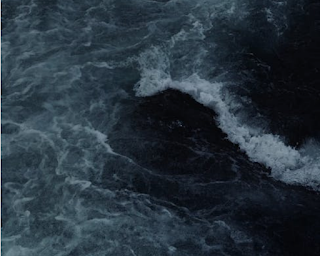
What is the poem about?
This is a simple, literal poem on the whole, describing a desolate, stormy island where people live defended against nature.
Context
Heaney grew up in a farming community in Northern Ireland and wrote about its farms and cities beset with civil strife, its natural culture and language overrun by English rule. As a Catholic (more common in the Republic of Ireland), his identity was in conflict with the Protestant British hegemony.
Like Wordsworth, Heaney’s poetry captures the detail of nature, and rural life with precision – showing man in nature. He frequently evokes the pre-modern worlds of older poets like William Wordsworth and this poem links well to ‘The Prelude’. It can also be linked well to the first half of ‘Exposure’ or to ‘Bayonet Charge’.
Types of Conflict
-
Civilization (man) vs nature
-
Northern Ireland in conflict
An alternative interpretation is that it is Northern Ireland suffering from the Troubles – terrorism, and other violence connected to British rule. This is suggested by the war imagery:
-
‘strafe’to attack repeatedly with bombs or machine-gun fire from low-flying aircraft
-
‘Blast’
-
‘Pummels’
-
‘Exploding’
-
‘Bombarded’ – hit by a series of bombs
-
‘Salvo’ a simultaneous discharge of artillery or other guns in a battle.
TASK Find these words and underline them. They are from the SEMANTIC FIELD of war.
Largely monosyllabic, the poem has a tight, abrupt feel – quite matter of fact. It is largely in iambic pentameter, but includes some trochees, and spondees. It is not rhymed.
Poetic Metre
Iamb (unstressed/stressed _ | ) – rising rhythm, suggest hope, pace
-
This wizened earth has never troubled us
-
Can raise a tragic chorus in a gale
-
Or stooks that can be lost. Nor are there trees
Trochee (stressed/unstressed | _ )- falling rhythm, adds emphasis to the stressed syllable (word / connotations) as this stands out distinctly from the flow of the iambs
-
Blast: you
-
Strange, it
TASK Find, underline and label these. They are interesting because they stand out from the normal rhythm.
Spondee (both syllables stressed | |) , like two quick punches
-
Sink walls … good slate
-
But no
-
Turned savage
TASK Find, underline and label these. They are interesting because they stand out from the normal rhythm.
Sounds
The MONOSYLLABLES stand out – harsh, short and tight: squat, sink, slate, stacks, stooks, flung spray hits, spits. Later, these open up into longer, more open sounds: wind, dives, strafes, air, strange, huge, fear – as if the storm is growing in scale OR a sense of freedom/space.
There is also a good deal of ASSONANCE – verbal echoes, seen in the HALF RHYME of ‘stacks/stooks’, then of the tight, high sounds in ‘hits’, ‘spits’, ‘sit’, ‘wind’ then ‘tight’ and ‘dives’. The first are lower /i/ while the second are higher /ie/ sounds that create tightness as if trapped OR matter of fact.
TASK find and label the HALF RHYME.
Likely Exam Questions
How is conflict presented? (man/nature, civilisation, war)
How is power presented? (man, nature)
|
We=inclusive, community
Sink= sense of being buried, hiding
wizened=ancient, dried up
stooks= Colloquial, farming jargon, connection to the land
Tragic chorus = METAPHOR set of voices in classical tragedy (pitiful suffering on a grand scale)
Exploding comfortably OXYMORON = live happily in conflict/danger
Sinister, hissing sibilants (s)
Sit tight=colloquial, comfortable, everyday
Wind strafes = METAPHOR of wind as bombers (planes)
LINK to bombarded
|
We are prepared: we build our houses squat,
Sink walls in rock and roof them with good slate.
This wizened earth has never troubled us
With hay, so, as you see, there are no stacks
Or stooks that can be lost. Nor are there trees
Which might prove company when it blows full
Blast: you know what I mean – leaves and branches
Can raise a tragic chorus in a gale
So that you listen to the thing you fear
Forgetting that it pummels your house too.
But there are no trees, no natural shelter.
You might think that the sea is company,
Exploding comfortably down on the cliffs
But no: when it begins, the flung spray hits
The very windows, spits like a tame cat
Turned savage. We just sit tight while wind dives
And strafes invisibly. Space is a salvo,
We are bombarded with the empty air.
Strange, it is a huge nothing that we fear.
|
troubled=ironic (hay is a gift, but he finds the positive side of the lack – they have nothing to lose)
nor/never=negatives, emphasises the sense of having nothing
prove company= colloq. suggests friends, so is ironic (can’t do damage by falling on them – see the REPETITION below)
too=community (affects all of them)
No natural shelter=Nature won’t protect them
tame/savage ANTITHESIS nature dramatically reverses (savage=against civilization)
invisibly/empty=nothingness, unreal danger
Huge nothing = seems a PARADOX – evokes we have nothing to fear but fear itself
|
